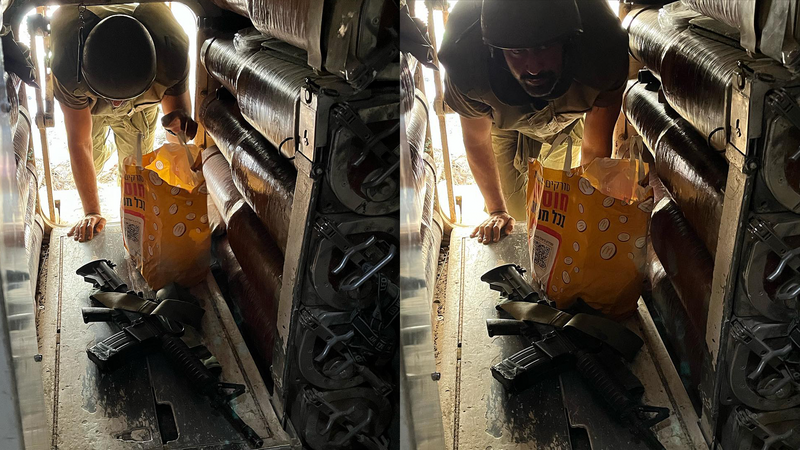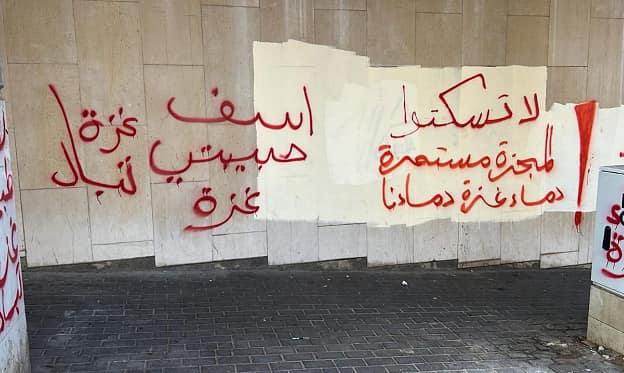tree
Billy Pilgrim has come unstuck in time.
He has seen his birth and death many times, he says, and pays random visits to all the events in between.
- 105 Posts
- 25 Comments

 910·2 years ago
910·2 years agoIf an admin tells me to do so I will, but you don’t need to backseat my posting, I will not make people open the article to read it if they don’t want to, I’m gonna assume you’re not a lawyer or an admin for that matter, just a fan of cooooooooopyright, like oh no, I totally believe in intellectual property, such a cool concept and I’m sure the people at TruthDig are big mad their work is reaching a wider audience

 432·2 years ago
432·2 years agoThe obvious answer being that you are far more likely to be closeted if you’re Mormon and it might be the only school you got a scholarship (they give very generous scholarships at BYU) to or your parents will pay for you to go to, but probably many more reasons than that

 16·2 years ago
16·2 years agoI installed freetube in preparation of this, haven’t used youtube itself all week either freetube or invidious and both work well for now, would recommend both if you’re open to them
https://www.investopedia.com/financial-edge/1212/average-net-worth-of-the-1.aspx
As of 2019, the top 1% of household net worth in the U.S. starts at $11,099,166.
It depends what you mean by public records, if you’re a private investigator or really good at digging through records you can find things, but it’s not like it’s easy and even then it’s only the stuff that needs to be reported by law which is not a lot, the only reason I mentioned Delaware is it’s famous for being a destinination for LLCs which people use to hide their money
https://www.theguardian.com/us-news/2016/apr/06/panama-papers-us-tax-havens-delaware
“You don’t really have to go to Panama or other tax havens. They are not the only ones making it possible for corrupt officials and other criminals to launder their money. You can do it in every state in the US,” explained Shah.
“In every state in the US, you can incorporate an LLC – [a limited liability company] – or another legal entity and you don’t have to disclose who the beneficiary on it is. In fact, Delaware is so synonymous with anonymous companies and ghost corporations that it was named in Transparency International’s Unmask the Corrupt campaign as one of the most symbolic cases of corruption.”
read more here if you’re curious
I think you would be surprised at how much of it is in LLCs in Delware or trusts in South Dakota, there are plenty of tax loopholes domestically as well, most people under hundred-millionaire status are not doing panama papers type stuff

 2·2 years ago
2·2 years agohttps://ghostarchive.org/archive/eEtzd
ghost archive link if you don’t want to login to the intercept

 3·2 years ago
3·2 years agoThe why is a long answer that I don’t have the energy nor the specific expertise to comment on, start here if you’re interested https://en.wikipedia.org/wiki/Algeria–Morocco_relations or just google it there is plenty of stuff out there

 32·2 years ago
32·2 years agoAre you furbysplaining the furb metabolism? smh
 51·2 years ago
51·2 years agoI STG if someone links me another mediabiasfactcheck 🫠
I am well aware of both the biases of the sources I read and the biases of the ones you read too

 3·2 years ago
3·2 years agoAlex Press corrected Hasan Piker one time for using that term on his stream talking to her, and while the connotation of a “Union Boss” somewhat harkens to a distorted image of a corrupt or sometimes mobbed up union like Jimmy Hoffa and the teamsters, I think most people under the age of 50 will never here that kind of connotation used or take it seriously if they did.
It’s not harmful to do a “citations needed” style critique of certain terms like this, but I think any reader/listener of therealnews is already gonna be solidly pro union to begin with.
I probably would post the link to the podcast episode directly in a podcast community, because it’s kind of silly to link a podcast in a news comm even if it has a transcript, people are gonna assume it’s an article and then just not interact with it because they were expecting to read an article.

 3·2 years ago
3·2 years agoWas just about to post this here https://www.vice.com/en/article/n7edpk/not-close-to-being-done-how-cops-are-handling-5-million-bees-on-the-loose

 11·2 years ago
11·2 years agoContinued :
But in recent months, Mr. Biden and his aides have been talking to Saudi officials about their country establishing diplomatic relations with Israel, which would be a major geopolitical coup. In those discussions, the Saudis have asked the United States for security guarantees, more lethal weapons and help with a nuclear energy program. Mr. Biden might speak with Crown Prince Mohammed bin Salman, the de facto leader of Saudi Arabia, on the sidelines of a leadership summit of the Group of 20 nations next month in New Delhi, India.
Some members of Congress, mostly Democrats, have strongly criticized Saudi Arabia for its human rights record, including its yearslong war in Yemen. Those lawmakers will almost certainly raise further doubts about selling more arms to Saudi Arabia or working with it on a civilian nuclear program, which some U.S. officials fear could be cover for a nuclear weapons program.
Among those briefed on the killing last December by United Nations officials was Steven H. removedin, the U.S. ambassador to Yemen, according to a person who was present. Around that time, the United Nations also shared information with others at the State Department and with diplomats from France, Germany, Holland, Sweden and the European Union, this person said.
Inside Yemen, the border killings are anything but secret. Some attacks are reported on Yemeni television, and many of those wounded end up in Yemeni hospitals.
“We face these cases daily coming from the border areas: dead and seriously wounded, women, old people and children,” Mujahid al-Anisi, the head of the emergency unit at al-Jumhori Hospital, a Yemeni facility near the main crossing zone, told the The New York Times by phone on Wednesday.
The hospital receives an average of four or five cases a day, he said. Many are found by the road unconscious and driven 12 hours to the hospital with wounds in their heads, chests and abdomens that require urgent surgeries. Some need amputations. About one in 10 are women.
“These people arrive so worried and badly wounded,” he said.
Aid workers and United Nations officials have been tracking the violence since early last year, but international efforts to investigate the matter have been few, and public efforts to make it stop even fewer.
That’s because of many factors, aid workers said. Delivering aid in war zones like Yemen requires not angering one’s hosts, including the rebels who control northern Yemen and facilitate human trafficking, or one’s funders, which in some cases includes Saudi Arabia.
Rights violations, no matter how grave, rarely take priority when diplomats do business with their counterparts from rich partners like Saudi Arabia. And most efforts at accountability first call for Saudi Arabia to investigate itself, which it has shown little willingness to do.
Further limiting attention to the killings is their location, in an inaccessible border zone, where journalists, activists and other independent observers can’t witness events.
Fatigue among donors and the public with Yemen’s complicated, eight-year war also plays a role, as does the fact that the mostly Ethiopian migrants crossing Yemen are unlikely to show up in Europe.
“There is no risk for anyone, so they don’t pay attention to the problem,” said Ali Mayas, who has researched migration issues at Mwatana, a Yemeni human rights group.
Human rights groups have long documented threats to migrants from East Africa who cross the Gulf of Aden to Yemen and head north toward Saudi Arabia, where they hope to find work or escape political persecution. They started getting reports of increased violence on the border about two years ago.
Last September, Mwatana reported that the bodies of about 30 Yemeni and Ethiopian migrants had been found on May 12, 2022, on the Saudi side of the border, some bearing gunshot wounds or signs of torture. A State Department human rights report on Saudi Arabia’s acts in 2022 mentioned Mwatana’s research in a paragraph.
The Missing Migrants Project of the International Organization for Migration found that at least 788 migrants had died near the Saudi border in 2022, mostly from artillery or gunfire. The actual number of those killed was likely much higher, the organization said.
Last October, a group of United Nations experts confronted Saudi Arabia with reports similar to what Human Rights Watch would later find. They cited allegations that border guards had shot at migrants, killing as many as 430 in the first four months of 2022, and raped women and girls, sending some back to Yemen naked.
The experts said that, if confirmed, the incidents would indicate “a deliberate policy of large-scale, indiscriminate and excessive use of lethal force” to deter migrants and urged Saudi Arabia to rein in its forces.
The kingdom denied the allegations and said it needed more detail in order to investigate.
Nadia Hardman, the lead researcher on the Human Rights Watch report, said Western governments struggled with how to press Saudi Arabia on human rights.
“What is conceivable in the face of a country that just doesn’t care about its human rights record?” she said.
In a phone interview, Morris Tidball-Binz — the United Nations’ special rapporteur on extrajudicial, summary or arbitrary executions — who is a signatory to the experts’ letter to the Saudi government, said he was not surprised that the issue had received little attention. The events happened in a remote place, he said, “where the authorities are not known for being highly committed to respecting and protecting human rights.”
But he said he hoped increased public scrutiny would make a difference.
“The immediate reaction of denial is a typical one,” he said of the Saudi response. “But I am still hoping that we’ll see some improvements in terms of respect for, if not protection of, these migrants.”
Shuaib Almosawa contributed reporting from New Delhi, and Mark Mazzetti contributed from Washington.
Ben Hubbard is the Istanbul bureau chief. He has spent more than a dozen years in the Arab world, including Syria, Iraq, Lebanon, Saudi Arabia, Egypt and Yemen. He is the author of “MBS: The Rise to Power of Mohammed bin Salman.” More about Ben Hubbard
Edward Wong is a diplomatic correspondent who has reported for The Times for more than 24 years from New York, Baghdad, Beijing and Washington. He was on a team of Pulitzer Prize finalists for Iraq War coverage. More about Edward Wong

 221·2 years ago
221·2 years agoUntil the next republican runs on making it one (or this case goes all the way up to the current supreme court), it’s not a stretch that they could become one given that veterans already are, I know they aren’t now, but that can change quickly

 240·2 years ago
240·2 years agoI’m sure the cops can find a way to sue them if they don’t have it explicitly written down or will show up just to intimidate them at anything lesser than being asked not to be there, but we’ll see

 236·2 years ago
236·2 years agoyeah but if they want to do that they have to say “no cops” not “no cops who are currently carrying guns”

 773·2 years ago
773·2 years agoI wouldn’t be surprised if groups are already trying to spin stuff like that as anti veteran discrimination, although this article says “armed and in uniform” implying by that language they would serve an unarmed cop in uniform, so I guess they just have to ask everyone in uniform if they have a gun or install a metal detector if they actually want to enforce it

 13150·2 years ago
13150·2 years agoveteran status is though in a lot of cases so I would not be surprised if there was movement to take it in that direction


























Then an admin or mod will tell me to stop doing it, you are just a fan of IP not an admin or a mod, if it becomes a problem I’m sure I’ll hear about it from them directly